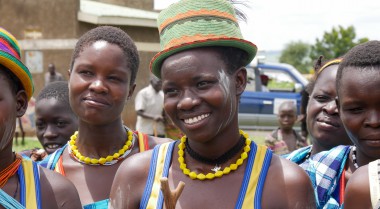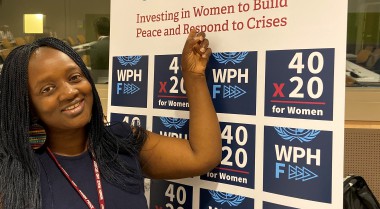
Geneva Peace Week 21: GPPAC is joining the Global Community to share Local Priorities for Strengthening Infrastructures for Peace (I4Ps)
It is not news to the international community that Infrastructure for Peace (I4Ps) are critical for peacebuilding and sustaining peace. Local peace councils, platforms for dialogue, local action on peace – all forms of I4Ps – are widely regarded as effective means of sustaining peace.
What are Infrastructures for Peace?
The definition of I4Ps is somewhat abstract as it includes many various actions and activities taking place to advance peace and development. Generally, I4Ps are understood as a dynamic network of skills, capacities, resources, tools and institutions that help build constructive relationships and enhance sustainable resilience of societies against the risks of relapse into violence.
I4Ps managed at the local level and supported globally are oftentimes the most impactful. Examples of local I4Ps include the Early Warning and Early Response Systems (EWERs) based on the data collected by community monitors in West Africa; the Ulaanbaatar Process was established as a civil society-led platform to address disputes and potential military aggression on the Korean Peninsula in the absence of another regional platform for dialogue; youth peace champions programme in Uganda, among others.
The COVID-19 pandemic challenged existing I4Ps and shed light on the I4Ps weaknesses. However, the pandemic also presented an opportunity to reflect on the current state of I4Ps and what must be done to enhance their capacity to support the goals of sustaining peace. GPPAC, together with the United Nations Development programme (UNDP), took this opportunity to learn from the COVID-19 pandemic to outline pathways for transformative change in peacebuilding and development envisioned ahead of 2030.
What is needed to strengthen Infrastructures for Peace?
Through the consultations held with local peacebuilders in Latin America and the Caribbean, Africa, Middle East and North Africa, Asia and the Pacific, and Eastern Europe, GPPAC and UNDP collected information about how local peacebuilders are using I4Ps to facilitate peacebuilding in their communities and what needs to be done to strengthen their capacity to address pressing challenges.
Local peacebuilders highlighted the following key priority areas for strengthening the role of I4Ps in peacebuilding and sustaining peace:
- Expanding multi-stakeholder and inclusive Infrastructures for Peace.
- Ensuring coordination and complementarity among Infrastructures for Peace
- Promoting, engaging and supporting local peacebuilding actors in all efforts to sustain peace
- Integrating the principles of human security and conflict sensitivity into the work of Infrastructures for Peace.
- Ensuring adequate, predictable and quality financing for Infrastructures for Peace.
- Measuring impact of Infrastructures for Peace through locally-articulated methodologies.
During the Geneva Peace Week (#GPW21), we will together with UNDP share the findings of our joint work in an issue brief and online digital dialogue. We will further engage with policy-makers, donors and local partners across the fields of peace, development and human rights to jointly support the role of I4Ps in peacebuilding and sustaining peace.
What is Geneva Peace Week (GPW)?
Geneva Peace Week (GPW) is a leading annual forum in the international peacebuilding calendar and the flagship event of the Geneva Peacebuilding Platform. Geneva Peace Week 2021 (GPW21) aims to galvanise leadership, build trust and contribute to transforming international cooperation. This year’s forum will be held totally online from 1-5 November 2021.
GPPAC and UNDP will participate in the Digital Series which will be broadcast on the GPW website and major streaming platforms (including YouTube and Spotify etc.) The Digital Series offers an opportunity for contributions to the frontline work of peace to continue beyond Geneva Peace Week, across geographical, cultural and temporal borders.
Read the full summary note here which includes a definition of Infrastructures for Peace and their most important characteristics as well as how I4Ps have been used during COVID-19 and further opportunities and recommendations.
For additional questions and suggestions, please reach out to un.office@gppac.net

